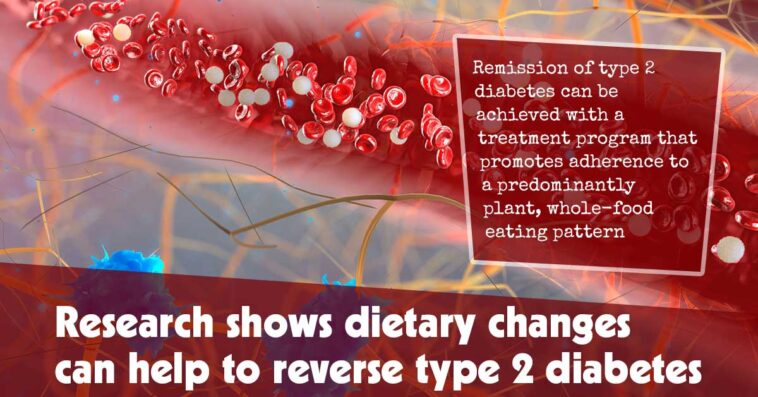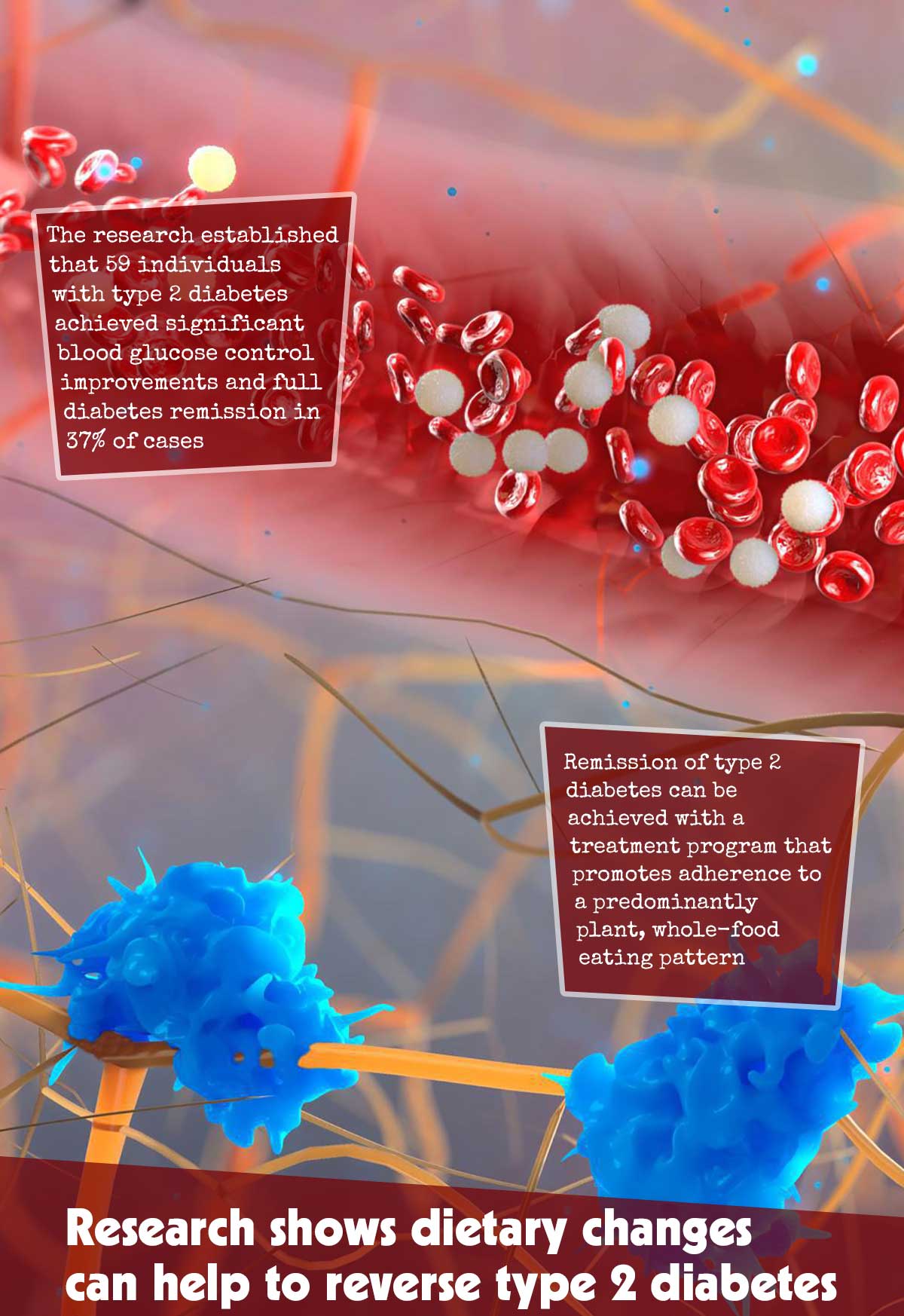According to a study, remission of type 2 diabetes can be successfully achieved with a lifestyle-based treatment program that promotes adherence to a predominantly plant, whole-food eating pattern incorporated into routine care.1✅ JOURNAL REFERENCE
DOI: 10.1177/15598276231181574
The research established that 59 individuals with type 2 diabetes who were part of a cardiac wellness program achieved significant blood glucose control improvements and full diabetes remission in 37% of cases.
The individuals were given a predominantly plant, whole-food, low-fat dietary pattern while also being medically treated at a wellness center. Glucose control improvements were seen together with significant BMI reductions.
Prior research has shown that diabetes outcomes can be improved with predominantly plant, whole-food eating patterns but that studies involved mostly significant calorie restriction, usually relying on fasting or liquid meal replacements. This study is unique in its evaluation of remission as a main outcome and provides information on remission feasibility by just consuming healthy food.
Diabetes prevalence is increasing, as is the healthcare community’s recognition that diet as the main intervention can result in lasting remission in people with type 2 diabetes.
This study further supports the efficacy of a predominantly plant, whole-food eating pattern as a main intervention for achieving remission in addition to the necessity of increased education for patients as well as physicians on successfully applying principles of lifestyle medicine and dietary interventions in daily medical practice.
Electronic health records were reviewed of patients who received treatment at the wellness clinic to determine who adopted a predominantly plant, whole-food eating pattern and reached significant HbA1c or blood glucose control improvements, in addition to type 2 diabetes remission. Data points were created from the time immediately before the lifestyle treatment and at the time of the most recent post-treatment.
The study made use of the American College of Lifestyle Medicine’s 2022 consensus remission definition of HbA1c less than 6.5% for a minimum of 3 months without devices, surgery, or pharmacologic therapy to reduce blood glucose.
The patients were 71.5 years old on average and their ages ranged from 41 to 89 years. 22 of the 59 patients fulfilled the requirements for remission of type 2 diabetes. An average de-escalation of glucose-reducing meds in patients after lifestyle change was also reported.
De-prescribing of medications is a physician-supervised process when a patient isn’t benefiting from a medication any longer.
The researchers pointed out that many individuals didn’t first self-select into a type 2 diabetes lifestyle medicine treatment plan, but were instead educated on the value of a predominantly plant, whole-food dietary pattern as well as regular physical activity participation as part of their wellness center routine care.
There’s an assumption that many individuals might not accept the concept of implementing a predominantly plant, whole-food eating pattern but there’s an increasing body of research that actually shows adherence to a predominantly plant dietary pattern is achievable and even enjoyable.
Even though full remission might not be attainable for every individual, the study shows that every individual should realize that it might be possible by adopting properly dosed therapeutic lifestyle changes.




